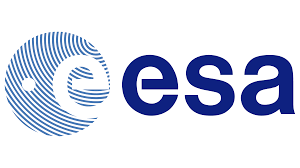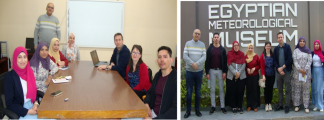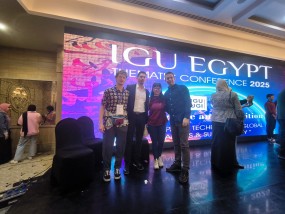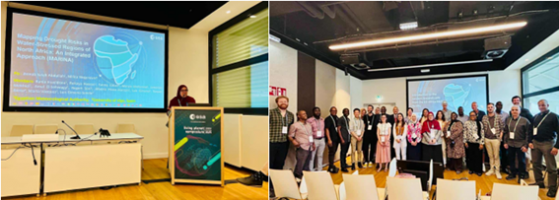MARINA 


Mapping Drought Risks in Water-Stressed Regions of North Africa: An Integrated Approach
Project Technical Report Project presentation
Call: ESA EO AFRICA Research and Development Facility . Research Projects 2024-2026.
Abstract
This research focuses on the northern Mediterranean part of Africa, one of the most water-stressed regions in the world. Drought is a natural phenomenon that particularly impacts this region, with huge consequences on water resources, vegetation, agriculture, population displacement, and human deaths.
Thus, the objective of this proposal is to evaluate the occurrence and characteristics of droughts that have affected this region, considering the possible effects of irrigation, temperature, and precipitation, and develop drought hazard maps. The causality of spatial drought and changes in atmospheric and hydrological conditions over the primary production will also be assessed, which will permit the development of a predictive model based on machine learning. This will be possible thanks to ESA/EO data, which provides a consistent and reliable source across a region with a poor weather station network. The combined assessment of drought hazard, vegetation susceptibility, and density of population will allow the development of final maps of drought risk affectation. The outcomes will provide valuable insights into the dynamics of drought and will enhance our understanding of drought causality and its impact on vegetation. Finally, this project will contribute to the development of more effective drought management strategies, supporting food security and environmental resilience.
Team:
European Team: all the members belong to Environmental Physics Laboratory University of Vigo with internationally recognized expertise in the hydrological cycle.
Leader PI: Dr. Milica Stojanovic
Group: Dr. Luis Gimeno, Dr. Raquel Nieto, Dr. Rogert Sorí, Dr. Albenis Pérez-Alarcon, Dr. Marta Vázquez and Dr. Luis Gimeno-Sotelo
African Team: All the members belong to Egyptian Meteorological Authority (EMA).
Co-PI: Dr. Zeinab Salah Abdullah
Group: Dr. Rokaya Mohamed Hassan, MSc. Marwa Samy Mohamed, MSc. Antonios Fahmy Sidhom Mekhiel, BSc. Rania Ezz Eldeen, BSc. Fatma Reda Amin Ismail and BSc. Amal Saber Ali El-Sehwagy
--
Face-to-face meeting Spain-Egypt team:
- Face-to-face meeting between team members held in Cairo, Egypt (April 16, 2025).

- Face-to-face meeting between team members held in Ourense, Spain (19-24 January, 2026).



Publications
A. Pérez-Alarcón, R. Sorí, A. El-Sehwagy, R.M. Trigo, R. Nieto, L. Gimeno, Z. Salah, M. Stojanovic (2025) Unveiling the Role of Mediterranean Cyclones in North Africa’s Precipitation, Earth Systems and Environment, doi: 10.1007/s41748-025-00905-7.
Conferences:
The 6th International Electronic Conference on Applied Sciences, 9–11 December 2025. Online.
Saber, A., Salah, Z., Wahab, M.M., Pérez-Alarcón, A., Investigation of Mediterranean Cyclones and Their Contribution to Heavy Precipitation in North Africa Using ERA5. Oral presentation.
Mediterranean Geosciences Union Annual Meeting (MedGU-25), 10 to 13 November 2025, Barcelona, Spain.
Stojanovic, M., Sorí, R., Pérez Alarcón, A., Hassan, R., Ismail, F., Eldeen, R., Nieto, R., Gimeno, L. Multiscale drought episodes and long-term drying trends in Northwestern Africa during 1950–2022. Oral presentation.
Pérez Alarcón, A., Sorí, R., El-Sehwagy, A., Trigo, R., Nieto, R., Gimeno, L, Salah, S., Stojanovic, M. A Lagrangian identification of moisture sources for precipitation in severe medicanes: The cases of Ianos, Apollo, and Daniel. Oral presentation.
Sorí, R., Stojanovic, M., Pérez Alarcón, A., Mohamed, M., Mekhiel, A., Nieto, R., Gimeno, L. Seasonal Compound Drought Typologies and Hazard in Northern Africa during the 1980–2023 period. Oral presentation.
Papers presented at conferences:
International Geographical Union (IGU-25), 12 to 15 April 2025, Cairo, Egypt.
Stojanovic, M., Sorí, R., Pérez Alarcón, A., Hassan, R., Ismail, F., Eldeen, R., Nieto, R., Gimeno, L. Drought occurence and severity in Northern Mediterranean Africa: Insights from 1980 - 2022. Oral presentation.
Pérez Alarcón, A., Sorí, R., Stojanovic, M., Salah, S., El-Sehwagy, A., Trigo, R., Nieto, R., Gimeno, L. Unveiling the contribution of Mediterranean cuclones to precipitation totals in the North Africa region. Oral presentation.
Sorí, R., Stojanovic, M., Pérez Alarcón, A., Ernst, J., Mohamed, M., Mekhiel, A., Nieto, R., Gimeno, L. Response of soil water content to dry and wet conditions across Northern Africa. Oral presentation.
Mediterranean Geosciences Union Annual Meeting (MedGU-25), 10 to 13 November 2025, Barcelona, Spain.
Sorí, R., Stojanovic, M., Pérez Alarcón, A., Vázquez, M., Ernst, J., Heidarizad, M., Nieto, R., Valero Jorge, A., Gimeno, L. Assessment of drought conditions in vegetated areas of northwestern Africa during the 1980–2022 period. Oral presentation.
Workshop & Symposium Attendance:
“Face to Face course on Cloud Computing and Algorithms for EO analysis”: Two African team members participated in the workshop celebrated in Abidjan, Côte d’Ivoire (March 10-14, 2025).
"Living Planet Symposium 2025" (https://lps25.esa.int/): Two African team members participated in the symposium held in Vienna, Austria (June 23–27, 2025).
Photos:
MedGU-25, 10-13 Nov 2025, Barcelona, Spain. IGU-25, 12-15 April 2025, Cairo, Egypt.


Cloud Computing and Algorithms for EO analysis. Living Planet Symposium 2025
Abidjan, Côte d’Ivoire (March 10-14, 2025) Vienna, Austria (June 23–27, 2025)

